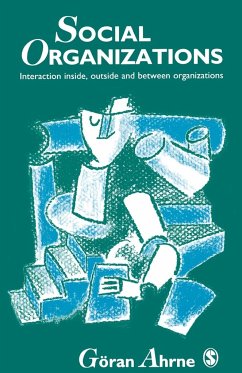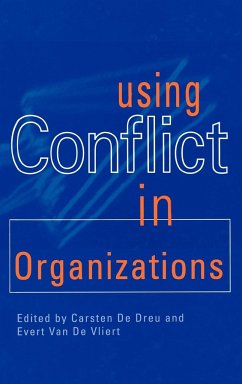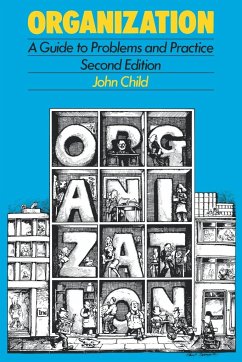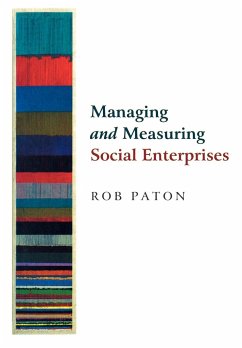`The exposition is very clear. Each chapter deals with important questions relevant to Ahrne's intent.... The book presents a convincing argument for... utilizing organization theory in order to make social theory less abstract' - Acta Sociologica
Hinweis: Dieser Artikel kann nur an eine deutsche Lieferadresse ausgeliefert werden.
Hinweis: Dieser Artikel kann nur an eine deutsche Lieferadresse ausgeliefert werden.
`In Social Organizations Ahrne's main idea is: action and structure are brought together in organizations, but organizations do not form societies or systems. The main purpose in Ahrne's book is to present more arguments supporting the idea that organization theory may contribute to social theory. To do this, the author deals with several theories relevant to the support of his main argument.... Important themes in the different chapters are: the universal pattern of organization, how individual interaction is transformed into organizational action, the limits of organizations, the main types of organizations in existence today, the relation between organizations and institutions and networks, how constellations of organizations are constituted. The exposition is very clear.... Despite the many themes with dealt with in only 170 pages, Ahrne binds the themes together by relating them to his main argument. In sum, the book presents a convincing argument for the relevance of utilizing organization theory in order to make social theory less abstract' - Acta Sociologica `Ahrne's exposition is deceptively simple and clear. He reconstructs social theory, untangles many major problems, and sets us all on the right track. Ahrne's writing reminds me of Erving Goffman, simple, elegant and profound' - Arthur L Stinchcombe, Northwestern University, Illinois `Goran Ahrne has written a delightful book, building on the premise that human actions are transformed into social processes through organized interaction. From that simple statement, Ahrne weaves a compelling argument, challenging us to look at organizations again, as if we had never seen them before. I mean this literally - his first question brought me up short: "Why do you go home?" Why indeed? Ahrne's book is filled with such startling questions, and his penetrating insights reminded me of a great deal of Erving Goffman's work. He asks us to take nothing for granted and to question self-evident practices. Because Ahrne takes a very inclusive view of organizations, this book should appeal to nearly all the social science fields concerned with organized action, including public administration, organization studies, the sociology of the family, economic sociology, and social psychology' - Professor Howard Aldrich, University of North Carolina, Chapel Hill `The exposition is very clear. Each chapter deals with important questions relevant to Ahrne's intent.... In sum, the book presents a convincing argument for - at least - the relevance of utilizing organization theory in order to make social theory less abstract' - Acta Sociologica








